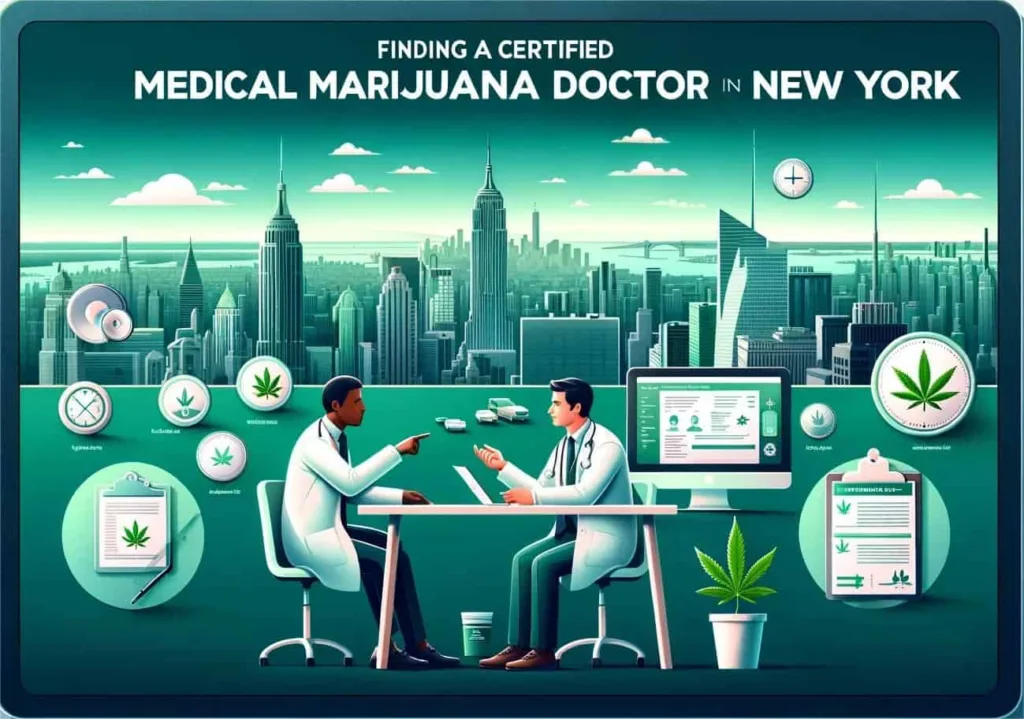Medical marijuana has garnered attention as a potential therapeutic option for Huntington’s Disease (HD), an inherited neurodegenerative disorder. HD impacts muscle coordination, leading to cognitive decline and behavioral symptoms. The condition, caused by a genetic defect on chromosome four, currently has no cure, and treatments focus on managing symptoms to improve the quality of life.
Studies have suggested that cannabis may act as a neuroprotectant, potentially slowing the progression of HD, and reducing symptoms like irritability, uncontrolled movements, and hypersalivation. The endocannabinoid system, which plays a crucial role in HD’s progression, can be influenced by cannabinoids found in cannabis. This interaction is believed to be key in managing the disease, though more research is needed to fully understand its effects.
Medical marijuana is also considered effective in addressing the psychiatric conditions, including anxiety, often accompanying HD. Traditional medications for these symptoms come with side effects like dependency and worsened psychiatric conditions, whereas medical marijuana is seen as having fewer negative side effects. It may help reduce tension, anxiety, nausea, restlessness, and insomnia, common issues in HD patients.
In New York, medical marijuana has been made accessible to HD patients under the state’s medical marijuana program. This program is part of a broader effort to provide relief to patients suffering from serious diseases and aligns with changing perceptions and legal frameworks surrounding medical cannabis use.
Table of Contents
ToggleIntroduction to Huntington’s Disease
What is Huntington’s Disease?
Huntington’s Disease (HD) is a progressive brain disorder caused by a single defective gene on chromosome 4. This genetic anomaly leads to physical, cognitive, and emotional symptoms. The hallmark of HD is the gradual deterioration of nerve cells in the brain, impacting an individual’s functional abilities, often resulting in movement disorders, cognitive decline, and psychiatric disorders.
HD is characterized by its hereditary nature; it’s passed from parents to children through a mutation in the Huntingtin gene. When this gene is defective, it produces an abnormal version of the huntingtin protein, which leads to the progressive degeneration of brain cells. Symptoms typically appear between the ages of 30 and 50 but can emerge earlier or later. These include involuntary jerking or writhing movements (chorea), muscle problems, balance and gait issues, difficulties with speech and swallowing, cognitive impairments, and emotional disturbances.
How Common is Huntington’s Disease in the United States?
In the United States, Huntington’s Disease is relatively rare. According to the Huntington’s Disease Society of America, approximately 30,000 Americans have HD, with another 200,000 at-risk of inheriting the condition. This rarity contributes to challenges in public awareness and understanding of the disease.
Why is Huntington’s Disease a Concern for Public Health?
HD presents significant public health concerns due to its profound impact on individuals and families. Being a progressive and incurable disease, it necessitates long-term care, often involving multidisciplinary approaches. The genetic aspect of HD also poses psychological and emotional challenges, as family members must grapple with the possibility of inheriting or passing on the disorder.
Moreover, the social and economic burdens are considerable. HD impacts employment, requiring adjustments or early retirement, and incurs high healthcare costs due to the need for specialized and continual medical care, therapy, and support services.
Understanding Medical Marijuana
Medical marijuana, a topic gaining increasing attention in the healthcare sector, refers to the use of the marijuana plant or its extracts for medicinal purposes. It’s essential to distinguish this from recreational use, as medical marijuana is specifically targeted for health benefits and is often subject to different legal regulations.
What is Medical Marijuana?
Medical marijuana utilizes cannabinoids, which are compounds found in the cannabis plant. The two most notable cannabinoids are Tetrahydrocannabinol (THC) and Cannabidiol (CBD). THC is the psychoactive component known for producing the “high” associated with marijuana use, while CBD is non-psychoactive and has been linked to various health benefits. Medical marijuana products can vary significantly in their composition and concentration of these cannabinoids.
How Does Medical Marijuana Work in the Human Body?
Medical marijuana works by interacting with the endocannabinoid system (ECS) in the human body. The ECS plays a crucial role in maintaining homeostasis, regulating functions like sleep, appetite, pain, mood, and immune responses. Cannabinoids like THC and CBD interact with the ECS by binding to receptors, primarily CB1 and CB2.
This interaction can help modulate the sensations of pain, reduce inflammation, stimulate appetite, and improve mood, among other effects. Research in this area is ongoing, with scientists continually uncovering new insights into how cannabinoids exert their effects.
Who Can Benefit from Medical Marijuana?
A wide range of individuals may benefit from medical marijuana, particularly those with certain medical conditions where traditional treatments have been insufficient or have resulted in significant side effects. Some of the key conditions where medical marijuana has shown promise include:
- Chronic Pain: Often considered a safer alternative to opioids, medical marijuana can significantly reduce chronic pain associated with various conditions.
- Neurological and Mental Health Disorders: Conditions like epilepsy, multiple sclerosis, and anxiety disorders have shown positive responses to medical marijuana treatment.
- Cancer-Related Symptoms: Medical marijuana can help alleviate nausea and vomiting associated with chemotherapy and stimulate appetite in cancer patients.
- Gastrointestinal Disorders: Conditions like Crohn’s disease and IBS have shown improvement with the use of medical marijuana, due to its anti-inflammatory properties.
It’s crucial to consult a healthcare professional before starting medical marijuana, as it’s not suitable for everyone and may interact with other medications.
Medical Marijuana and Huntington’s Disease
How Can Medical Marijuana Help in Huntington’s Disease?
Medical marijuana has shown potential as a beneficial treatment for Huntington’s Disease (HD), particularly due to its interaction with the endocannabinoid system (ECS) in the human body. The ECS plays a significant role in regulating various bodily functions and is linked to the progression of HD. Specifically, impairments in the ECS, such as the loss of CB1 receptors in critical brain areas like the basal ganglia, are associated with HD. These impairments are thought to contribute to the worsening of motor function and other symptoms of HD.
Research suggests that cannabinoids, especially THC (Tetrahydrocannabinol), could act as neuroprotectants, potentially slowing the progression of HD. THC, along with other cannabinoids, might aid in alleviating symptoms like irritability, uninhibited behavior, uncontrolled movements, and hypersalivation. It could also improve cognitive measures and movement control.
What are the Known Benefits of Medical Marijuana for Huntington’s Disease Patients?
Studies on medical marijuana’s efficacy in treating HD have produced mixed results. Some animal studies and case studies indicate that cannabinoids, including THC and synthetic versions like nabilone, can improve mood, reduce irritability, and enhance controlled movements, lessening chorea (involuntary dance-like movements).
Clinical studies have also shown moderate improvements in motor skills, chorea, and cognition in patients treated with cannabinoids. However, these studies often used low doses of cannabinoids, leading to moderate improvements. Further research with higher doses might provide more conclusive results.
Additionally, the role of CBD (Cannabidiol) in treating HD has been explored. While some animal studies suggest that CBD could reverse neuronal loss in HD, controlled clinical trials with patients have not shown significant improvements.
Why Do Some Doctors Recommend Medical Marijuana for Huntington’s Disease?
The interest in medical marijuana for HD arises from its potential benefits in managing symptoms and possibly slowing disease progression. The interaction of cannabinoids with the ECS and the resultant effects on motor functions, mood, and behavior are promising areas of research. However, it’s important to note that the research is still in its early phases, and further studies are needed to understand the full scope of medical marijuana’s efficacy in treating HD.
Given these findings, some doctors may recommend medical marijuana for HD patients to manage specific symptoms and improve quality of life. It is essential for patients to consult with healthcare professionals to understand the potential benefits and risks of using medical marijuana for HD.
Medical Marijuana Policy and Access in New York
Legal Regulations for Medical Marijuana in New York
As of March 2023, New York’s medical marijuana policy has undergone significant changes, notably the removal of a specific list of qualifying medical conditions. This means that the decision to certify patients for medical marijuana use is now at the discretion of registered healthcare providers. These providers can certify patients after determining that their conditions are debilitating and could benefit from marijuana treatment.
Healthcare providers eligible to certify patients include a range of professionals like physicians, nurse practitioners, and others who are licensed to prescribe controlled substances in New York. They must complete a specialized course on medical cannabis to be qualified to certify patients.
Accessing Medical Marijuana for Patients with Huntington’s Disease
Patients with Huntington’s Disease in New York can access medical marijuana through consultation with a registered healthcare provider. These providers assess the suitability of medical marijuana for the patient’s condition and can certify patients using both in-person and telemedicine services. Once a patient is certified, they are automatically registered in the New York State medical cannabis program, and their certification includes a registry ID number.
Patients no longer need to apply for a separate medical marijuana card or register directly with the Office of Cannabis Management (OCM). Their medical cannabis certification and a valid government-issued ID are sufficient to purchase medical cannabis at registered dispensaries.
Where to Obtain Medical Marijuana in New York
Certified patients or their designated caregivers can purchase medical cannabis products from dispensaries operated by Registered Organizations (RO) in New York State. These dispensaries are equipped with pharmacists to assist patients in selecting the appropriate products for their conditions and to check for interactions with other medications. Patients should contact these organizations directly to learn more about the available products.
Additionally, registered medical marijuana patients aged 21 or older, and their designated caregivers, are permitted to cultivate cannabis at home for the patient’s personal use, following specific guidelines and limits set by the state.
Patient Perspectives and Case Studies
Medical marijuana has been a topic of interest for patients with Huntington’s Disease (HD) in New York, with some individuals reporting positive experiences. While comprehensive patient testimonials specific to New York are scarce, broader studies and case reports provide insight into how medical marijuana might benefit those with HD.
Experiences and Testimonials
Patients with HD have found medical marijuana beneficial in managing various symptoms associated with the condition. The use of cannabis and cannabinoids like THC and CBD has been reported to potentially slow disease progression and alleviate symptoms such as irritability, uninhibited behavior, uncontrolled movements, and hypersalivation. Additionally, improvements in cognitive measures, movement control, and walking ability have been observed.
A case study from 2006 highlighted a female patient with HD experiencing significant improvements in mood and controlled movements after using cannabis and a synthetic version of THC, nabilone. This led to reduced irritability, uninhibited behavior, and angry outbursts, making her calmer and more patient.
Challenges and Controversies
Controversies Surrounding the Use
The use of medical marijuana for treating HD is not without controversies. One of the primary concerns is the lack of extensive research and conflicting results from existing studies. While some studies have shown promising results in using cannabis as a neuroprotectant and in symptom management, others have found no significant effects or even potential detrimental impacts.
The variability in how the endocannabinoid system is affected in HD patients further complicates the matter. For example, loss of CB1 receptors in the basal ganglia and other brain areas related to HD has been observed, indicating a potential therapeutic target for cannabinoids. However, the exact mechanisms and efficacy of such treatments are still not fully understood.
Addressing the Challenges in New York
Medical professionals in New York face the challenge of navigating these controversies while adhering to state regulations and considering the best interests of their patients. With the state’s medical marijuana policy allowing doctors to decide on the use of medical marijuana for treatments, healthcare providers must assess each case individually. They must weigh the potential benefits against the known and unknown risks, considering the latest research and patient-specific factors.
The evolving landscape of medical marijuana research necessitates continuous education and awareness for both healthcare providers and patients. As research progresses, it is hoped that more concrete guidelines and evidence-based practices will emerge, aiding in the effective and safe use of medical marijuana for HD and other conditions.
Conclusion
In New York, medical marijuana offers a promising yet complex option for managing Huntington’s Disease (HD). The state’s flexible medical marijuana policies, which no longer specify qualifying conditions and allow doctors to make treatment decisions, enable more personalized approaches for HD patients. Studies and patient experiences suggest potential benefits in symptom management, including reductions in irritability, movement disorders, and cognitive challenges.
However, the medical community continues to grapple with the need for more extensive research and understanding of cannabis’s effects on HD. As the scientific community delves deeper into the implications and mechanisms of cannabinoids, it is hoped that clearer, evidence-based guidelines will emerge to optimize treatment strategies for HD in New York.
Resources
https://cannigma.com/conditions/huntingtons-disease/
https://pubmed.ncbi.nlm.nih.gov/33064979/
https://journals.library.ualberta.ca/jpps/index.php/JPPS/article/view/30967
https://www.sciencedirect.com/science/article/abs/pii/009130579190386G





